-
Caffeine
What the data says…

☕ Caffeine activates the central nervous system, which can assist in reducing exercise-induced exhaustion and the pain & discomfort experienced from harder exercise.
☕ Caffeine helps to metabolise stored body fat reserves while protecting limited muscle glycogen.
☕ Caffeine has been shown to increase muscle strength/ power and endurance.
☕ Exercise performance is increased with caffeine dosages ranging from 3 to 13 mg per kg of body weight (mg/kg).
My experience…
• I practised caffeine supplementation at the midpoint of 9–10 hour Ironman triathlon races.
• I consumed caffeinated carbohydrate gels (30 mg caffeine per gel x 5) and caffeinated tablets (200 mg caffeine x 2). Note – brewed coffee @ 150mg caffeine.
• I firmly believe the caffeine's "hit" extended my energy and lifted my flagging mood towards the back end of races. I think the cognitive improvement had a more significant impact than the physical return. The performance return was worth the loose stools towards the end of the races.
• I would continue to practice caffeine supplementation in enduring events.
....................................................................................................................................................................................................................
Whey protein.
What the data says…
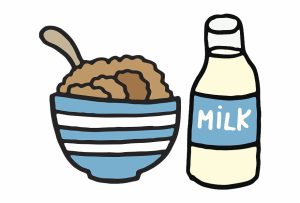
🥛 Whey is produced during the cheesemaking process.
🥛 The (milk) protein is then concentrated and isolated after the liquid whey is pasteurised.
🥛 Whey Concentrate: varies widely in protein ratio, lactose and fat content.
🥛 Whey Isolate: Consistently high in protein and low in fat & lactose (sugar) – a higher quality choice (and more expensive).
🥛 Dietary (whey) protein is made up of amino acids which build and repair muscles & bones. AA’s also make critical hormones and enzymes.
🥛 Amino acids are essential for continued good health.
My experience…
• I practised 40gr whey protein isolate (flavourless powder, 1 tsp honey, ½ tsp bicarb soda, water) daily for 16 weeks. I hoped the more easily absorbed protein would support 16+ hour training weeks.
• I maintained complete wellness for 16 weeks. Previously, I often fell to upper respiratory infections – which is common with training of this magnitude.
• My increased cycling strength 'might' have been attributed to the additional protein. Increasing running effort did NOT lead to functional injuries! A notable improvement.
• I'll continue to match whey protein isolate with lengthy periods of more demanding training. It 'might' also be a benefit for an aging body.
....................................................................................................................................................................................................................
Electrolytes
What the data says…
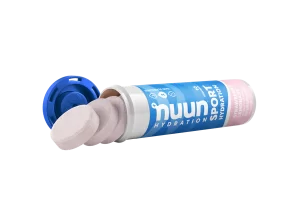
🧂 Electrolytes, or minerals, and the combination of sodium, magnesium, potassium, and calcium, assist your body in retaining cellular fluid while sweating heavily during strenuous activity.
🧂 Minerals may also keep joints lubricated, endure muscular contractions, and preserve your body's energy, preventing dehydration-related exhaustion.
My experience…
• It took four cracks at the Hawaiian Ironman Triathlon to achieve a healthy performance. I believe additional mineral consumption four days out from the race is a crucial reason.
• On my fourth trip to the island, unlike many others, I did not cramp, finished strongly, or did not require a (saline) drip. Additionally, my urine was not rusty in appearance for the first time.
• In the four days preceding the race, I consumed four NUUN brand mineral tablets daily. These tablets contained a higher ratio of sodium (bicarbonate) than common commercial brands like Hydrolyte. NUUN also contain potassium, magnesium, and calcium.
• I consumed one tablet hourly on the bike (5 hours). The tablets regulated appropriate water consumption - 1 1/2 water bottles per hour. During the run leg, I carried a tiny container of sea salt and rubbed a few grains on my tongue every 30 minutes.
While some data suggest minimal supplementation is unnecessary, I strongly believe in the benefits. Additional minerals (salt) appear to be easily expelled in sweat, urine and respiration.
....................................................................................................................................................................................................................
BCAA Glutamine.
What the data says…
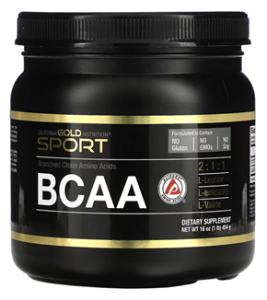
💪 Glutamine is an amino acid created naturally by the body. Found in muscles, BCAAs are necessary amino acids that your body must obtain from food or supplements like BCAAs and protein sources in your diet.
💪 Glutamine and BCAAs are two crucial nutrients for athletes' recovery. BCAAs assist muscles in naturally increasing strength and, in some cases, growing. Athletes may perform at their peak power and speed up their recovery with the BCAA & Glutamine combination.
My experience…
• I practised BCAA supplementation @ 5g twice daily for eight weeks in preparation for a 100km mountain bike race in 2021 – which was cancelled at the last minute.
• I did not use any other supplementary aid.
• My time-honoured testing cycling session showed an increase of 37 watts over the eight weeks. This increase is typical of past training blocks.
• I maintained good health throughout the block, including more challenging (higher) threshold training. However, I held good health from previous training blocks, simply choosing whole real food and eliminating refined sugar, gluten-based carbs and processed vegetable oil (seeds).
• Though my testing period resulted in a solid return in terms of health and performance, I'm not sure the BCAA inclusion gave me a noteworthy return — or one that was above and beyond other supplementary options. I won't return to supplementing with BCAA's.
....................................................................................................................................................................................................................
Creatine
What the data says…
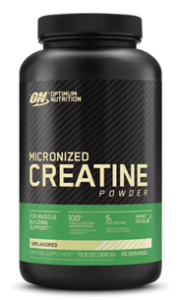
⚡ Creatine plays a significant role in providing instant & enduring energy to working muscles. Muscles, the liver and the kidneys make creatine with food supplying the lion's share. Creatine supplementation is popular among athletes as it’s believed it increases muscle strength & power.
⚡ Creatine is thought to increase lean muscle mass, and help the muscles recover more quickly during exercise. This muscular boost may help athletes achieve bursts of speed and energy, especially during short bouts of high-intensity activities such as weightlifting or sprinting.
My experience…
• I practised creatine supplementation @ 5g daily for six weeks.
• I lifted weights 4/7 and used the clean press exercise (similar to an Olympic lift) to measure adaptive improvement.
• For the first three to four weeks, there was no discernible gain in my strength or power. However, I surely felt more energised when training.
• I gained a 15% boost in strength between weeks 5 and 6.
• My strength & leanness showed similar gains to previous training blocks – free from creatine supplementation. However, I appeared to recover faster than before (re muscle soreness). This boosted my training motivation.
• When concentrating on strength improvements, I will supplement with creatine. My gut feeling is the additional ergogenic creatine support is a benefit with harder training and 50+ years on the clock.
....................................................................................................................................................................................................................
Beta-Alanine
What the data says…
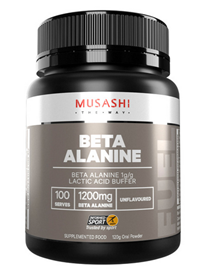
🏃♂️ By extending muscular exhaustion, beta-alanine improves athletic performance. Additionally, it contains anti-aging, immune-boosting, and antioxidant qualities. Both food and supplementation that contain carnosine can provide beta-alanine.
🏃♂️ Beta-alanine supplementation has enhanced strength, high-intensity exercise, and sprint performance. Because it is a carnosine component, beta-alanine serves as a pH buffer to improve the efficiency with which your muscles utilise energy.
My experience…
• While preparing specifically for a 10 km running race, I experimented with 2gr per day for four weeks.
• Harder (faster) running training and age commonly mean running-related niggles. With my peak years of running speed behind me, I carried out this little test to see if it was safe to speed up again.
• First off, it could just be a coincidence, but my skin became oily and blemished just after I began the trial.
• I was cautious with including high-intensity workouts – spacing harder runs, running on grass, and using ice therapy post-workouts.
• After three weeks, I loved running faster for the first time in years – with little apprehension of a body breakdown (namely; calves, Achilles & hammy's).
• I ran the 10km event at a faster pace than was previously believed.
• While my body felt good at this pace, I sensed that continued blowouts could lead to injury.
• I would recommend Beta-alanine supplementation consideration for aging bodies and harder efforts. I reckon my 'faster' running days are done.
